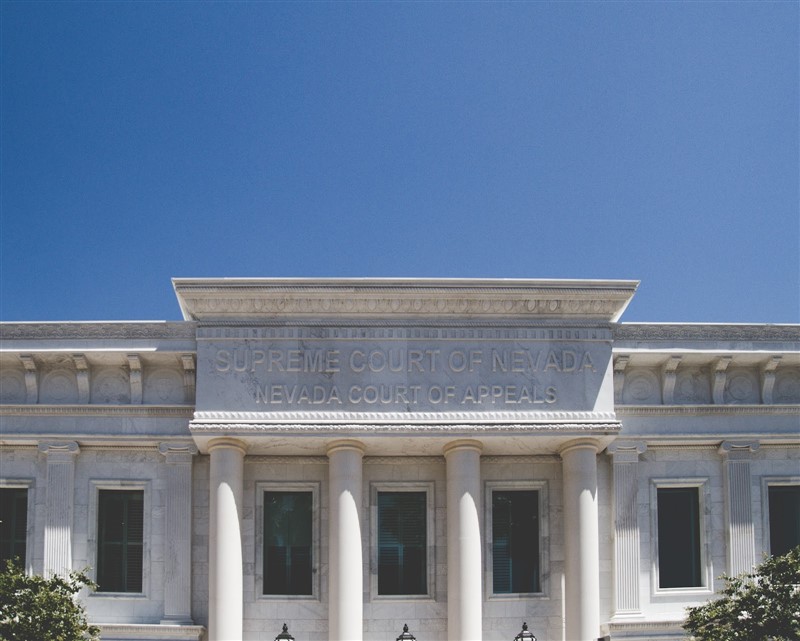How to Address a Judge in a Letter
Addressing the Envelope
When you address the envelope, you should use the following formatting:
The Honorable [First Name] [Last Name]
[Formal Title] [Name of the Court]
[Postal Address of the Court ]
Let's take a look at a few examples, using real judges.
The Honorable Robert J. Jonker
Chief Judge of the U.S. District Court for the Western District of Michigan
685 Federal Bldg.
110 Michigan St NW
Grand Rapids MI 49503
The Honorable Erin M. Peradotto
Associate Justice of the Supreme Court of the State of New York
Appellate Division Fourth Department
50 East Avenue, Suite 200
Rochester, New York 14604
The Honorable Terry Fox
Judge of the Colorado Court of Appeals, 22nd Judicial District
2 East 14th Avenue
Denver, CO 80203 United States
To find these addresses and titles, you would simply look up the court website or ask for assistance at a library. If the name of the court is too long to fit on one line, you can carry over into a second line.
The Chief Justice of the Supreme Court does not need to be addressed by name. He is one of a kind! There's only one Chief Justice of the U.S. at a time.
The Chief Justice of the United States
The Supreme Court
One First Street, NE
Washington, DC 20543
Let's say you know a judge personally, and you wanted to send her an informal note or an invitation. You might address an envelope to a judge and her husband at their home address, as follows:
Honorable [First Name] [Last Name] and Mr. [Last Name]
[Street Address]

Formatting the Letter
Begin your formal letter with the date and the court's address in the upper left. Next, add two blank lines, and then write your own contact information including your full name and mailing address. Under that, type your salutation. Depending on the judges title, you should write one of the following, followed by a comma:
- Dear Judge [Last Name] or Honorable Judge [Last Name]
- Dear Justice [Last Name]
- Dear Chief Judge [Last Name]
- Dear Chief Justice [Last Name]
Here's an example:
08/26/2020
The Supreme Court
One First Street, NE
Washington, DC 20543
John Smith
123 Apple Street
Miami, Florida 33101
Dear Chief Justice Roberts,
Next, in the body of your letter, you should refer to the case name and number. For instance, you might say, "I am writing to you about The State vs. Andrea Clinton, case number 0308001." It's also important that you identify yourself and your relationship to the case early in the letter, preferably in the first line. You might say, "As Andrea's former employer, I am writing to request leniency in sentencing…" Keep your message short and simple. By the time you're done, the body of the letter shouldn't be more than one page long. Maintain a professional tone, and try not to throw in complicated legal language if you're not a lawyer.
To conclude the letter, it's common to sign-off with the phrase "respectfully" or "respectfully yours."
Reasons to Write a Letter
There are many occasions when you shouldn't write to a judge. It's inappropriate to introduce new evidence in a letter to a judge. As we explained earlier, the court prohibits any ex parte communication from a defendant or plaintiff. In other instances, sending a request to a judge wastes time because any motion should be filed through a different process. Still, in certain circumstances, a formal letter to a judge would be appropriate.
Here are a few instances when it makes sense to write to a judge directly:
- Custody Cases—Family and friends may want to share information about the fitness of a parent.
- Early Release—An inmate may provide information about why a judge should consider an early release date. Also, a friend or family member may provide a letter of support to explain why someone should be released on bond.
- Legal Status—Family and friends may send a letter of support, demonstrating that a detained person has ties to the community.
- Sentencing—Family and friends of the defendant may want to illustrate his or her good character. Alternatively, family and friends of the victim can share information about the damaging nature of the crime.
When writing a character reference letter, you should aim to give concrete examples. Rather than sharing your personal opinion, give the judge an idea of the behaviors that the person displayed that helped you form your opinion. For example, if you wanted to write a letter to a judge to advocate for someone's early release from prison, you might point to the person's accomplishments and actions while incarcerated. In addition, you could explain any community support that the inmate can expect to receive upon release, such as housing opportunities, work opportunities, counseling, or mentorships.
The judge is more likely to be persuaded by logic than by emotion. Whether you're writing a letter to a judge about the fitness of a parent, an early release, a person's immigration status, or a recommendation for sentencing, you should try to list factual examples to bolster your argument. Keep your letter brief, and be respectful. Don't call the judge by his or her first name or use informal language.
Conclude the letter by thanking the judge. You may include a CC field at the bottom of the page to indicate anyone else who has received a copy of the same letter. After your sign-off, you should include your full name, professional title (if relevant), and any additional contact information—such as phone number or email address—that you'd like the judge to have.
Sources:
- https://thelawdictionary.org/article/best-way-to-write-a-professional-letter-to-a-judge/
- https://eforms.com/recommendation-letter/character-reference-letter-for-court/#HowtoWrite
- https://www.encyclopedia.com/articles/best-way-to-write-a-professional-letter-to-a-judge/
- https://www.michigan.gov/documents/Sample_Letter_to_Judge_110114_7.pdf
- https://legalbeagle.com/8143300-write-letter-leniency-judge.html

Kari Lisa Johnson
I'm an award-winning playwright with a penchant for wordplay. After earning a perfect score on the Writing SAT, I worked my way through Brown University by moonlighting as a Kaplan Test Prep tutor. I received a BA with honors in Literary Arts (Playwriting)—which gave me the opportunity to study under Pulitzer Prize-winner Paula Vogel. In my previous roles as new media producer with Rosetta Stone, director of marketing for global ventures with The Juilliard School, and vice president of digital strategy with Up & Coming Media, I helped develop the voice for international brands. From my home office in Maui, Hawaii, I currently work on freelance and ghostwriting projects.
How to Address a Judge in a Letter
Source: https://thewordcounter.com/blog-address-letter-judge/